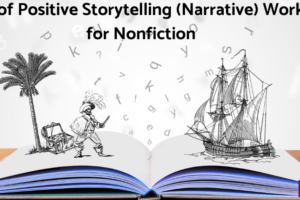Marginalia: 25 Perfectionism Quotes that Probably Won’t Make It into Our New Book
As we’re approaching launch of the book I’ve mentioned a few times, Michele and I have accumulated dozens of inspiring and informative quotations about the perils of perfectionism and the benefits of what we’re calling “flawsomism.” We can’t put them all in the book, not least because we’ve designed it to have generous margins for YOU to write your own marginalia and we don’t want to fill them up with ours.
Of course we will have some notes, references, and quotations in margins. I’ve written before about the history of marginalia and how the printed notes and handwritten replies sometimes became public conversations between authors, readers, and even editors and printers, added to later print editions. We’d be ecstatic if something like that happens with our book!
Nowadays it’s more likely for such conversations to go public online, with comments on the authors’ blog or social media pages. But as I’ve demonstrated often, for me the ideas that get discussed in my postings and comments often start from notes I’ve scrawled in the margins of the book as I read it.
Try it with our book, eh?
So, these quotes are no less valuable than what you’ll find in the book, but we just don’t have room for all that we’ve discovered along the way. (A few may slip in before we go to press; and some will likely appear in the companion workbook/journal that’s also in the works.) Hey, no list is perfect, right?
Quotes on Perfectionsim, Imperfection, and Good Enough
With my commentary, here and there ― marginalia on the marginalia, if you will.
1. “Perfectionism is self-abuse of the highest order.”
― Anne Wilson Schaef
We’ll be reviewing the science behind this truth, along with some real-life examples from our survey participants, recent news, and our own pasts.
2. “Perfectionism is the enemy of happiness. Embrace being perfectly imperfect. Learn from your mistakes and forgive yourself, you’ll be happier.”
― Roy T. Bennett, The Light in the Heart
3. “Today good enough means that I’m okay just the way I am. I play my position in the world. I catch the ball when it is thrown my way. I don’t always have to make the crowd go wild or get a standing ovation. It’s good enough to just catch the ball or even to do my best to catch it. Good enough means that I finally enjoy playing the game.”
― Jenni Schaefer, author of Goodbye Ed, Hello Me: Recover from Your Eating Disorder and Fall in Love with Life
Read that last sentence again. So much of flawsomism is about regaining the joy of living, working, and playing, that we often lose during or shortly after childhood.
4. “Perfection is imperfections we’ve made peace with.”
― Abhijit Naskar, author of Rowdy Scientist: Handbook of Humanitarian Science
5. “I remind myself, ‘Don’t let the perfect be the enemy of the good.’ (Cribbed from Voltaire.) A twenty-minute walk that I do is better than the four-mile run that I don’t do. The imperfect book that gets published is better than the perfect book that never leaves my computer. The dinner party of take-out Chinese food is better than the elegant dinner that I never host.”
― Gretchen Rubin, Happier at Home: Kiss More, Jump More, Abandon a Project, Read Samuel Johnson, and My Other Experiments in the Practice of Everyday Life
6. “Imperfection is the mother of style.”
― Orhan Pamuk, My Name Is Red
A note on adding words to our vocabulary
Our ambition is to make flawsome (combining “flawed” with “awesome”) and flawsomism (the philosophy and daily practice of being happy with that combination in everything) into household words.
So give it a try as you read these quotes. Take a moment to substitute flawsome or flawsomeness for terms like imperfect, or imperfection, or good enough. (Yes, we’re adopting unfamiliar words. We think these put a new and important spin on the subject. Let’s get them added to the dictionary together!)
And think to yourself, “that’s flawsomism” when you read one that tells you to accept good enough or learn from your mistakes. Or, when a particular quote speaks to you, say aloud, “I’m becoming a flawsomist!”
Back to the list:
7. “The imperfections – the weaknesses – the imprecisions – they are the very things which define humans as human. And which drive them to transcend their own failings.”
― Isaac Asimov, The Positronic Man
8. “There are stories about perfection, but those stories are lies. No one ever made the world better by being perfect. There is only mess in humans, and sometimes that mess turns to magic, and sometimes that magic turns to kindness, to salvation, to survival.”
― Maria Dahvana Headley, A People’s Future of the United States: Speculative Fiction from 25 Extraordinary Writers
Say it with me, “That’s flawsomism!”
9. “I am not a statue that was carved and sculpted to be a perfect masterpiece. I am still being moulded, and forever it shall be so. I am ready to be remodeled in the hands of the world’s greatest sculptor, time.”
― Kathirasan K, Mindfulness in 8 Days: How to find inner peace in a world of stress and anxiety
10. “At the end of the day, remind yourself that you did the best you could today, and that is good enough.”
― Lori Deschene
11. “A true critic ought to dwell rather upon excellencies than imperfections, to discover the concealed beauties of a writer, and communicate to the world such things as are worth their observation.”
― Joseph Addison
Remember to apply Addison’s advice to beat back that inner critic harping on your mistakes and weaknesses, so you can reveal the “concealed beauties” of your work and yourself ― to yourself.
12. “Perfectionism is a dangerous state of mind in an imperfect world. The best way is to forget doubts and set about the task at hand. … If you are doing your best, you will not have time to worry about failure.”
― Robert Hillyer
13. “To talk about the need for perfection in man is to talk about the need for another species. The essence of man is imperfection.”
― Norman Cousins
14. “Go for good enough. Worrying is often triggered by wanting to make the perfect choice or by trying to maximize everything. When buying a used car, you want one that is cheap, reliable, safe, sexy, the right color, and fuel efficient. Unfortunately, no single option is likely to be the best in all those dimensions. If you try to have the best of everything, you’re likely to be paralyzed by indecision or dissatisfied with your choice. In fact, this kind of ‘maximizing’ has been proven to increase depression. So don’t try to make the most amazing dinner; start out by just making a good dinner. Don’t try to be the perfect parent; just be a good one. Don’t try to be your happiest; just be happy.”
― Alex Korb, The Upward Spiral: Using Neuroscience to Reverse the Course of Depression, One Small Change at a Time
15. “The most important day is the day you decide you’re good enough for you. It’s the day you set yourself free.”
― Brittany Josephina
16. “When something unbelievably phenomenal is happening in your life and you don’t believe you are good enough to have it, you will consciously or unconsciously find a way to sabotage your dreams come true.”
― Iyanla Vanzant, Peace from Broken Pieces: How to Get Through What You’re Going Through
That last one gets at the widespread problem of imposter syndrome, which we cover as a “variant strain” of perfectionism.
17. “And it was the touch of the imperfect upon the would-be perfect that gave the sweetness, because it was that which gave the humanity.”
― Thomas Hardy, Tess of the D’Urbervilles
Did you remember to substitute flawsome in place of imperfect?
18. “Being an imperfect creature in an imperfect world he would always know paradox. And that was why in paradox there was always a kind of truth. That was why philosophers and soothsayers flourished. In a perfect world there would be no place for them. In an imperfect world the mysteries were always without solution and that was why there was always a great choice of solutions.”
― Michael Moorcock, The Elric Saga Part I
We talk a lot about holding the paradox of celebrating imperfection and striving for excellence as co‑existing mindsets in the book. It’s at the heart of flawsomism.
19. “Banish any thought of perfect or ‘optimized’ frameworks with optimized strategies. It’s not that you sometimes must make a decision without all the data or all the puzzle pieces, you always have to make a decision without all the data and pieces. … All you can hope for is a picture of the puzzle that is clear enough to give conviction. Approximately correct; not exactly wrong.”
― Peter Compo, The Emergent Approach to Strategy [Note: Peter is a client of ours.]
20. “Isn’t it time to drop the perfectionism and learn to accept each other as we are if we really want to grow as professionals and as people?”
― Mary T. O’Sullivan, The Leader You Don’t Want to Be (Revised and Expanded Edition), coming soon [Mary is also our client]
21. “Maybe my best isn’t as good as someone else’s, but for a lot of people, my best is enough. Most importantly, for me it’s enough.”
― Lindsey Stirling, The Only Pirate at the Party
22. “If you’re waiting until you feel talented enough to make it, you’ll never make it.”
― Criss Jami, Healology
23. “The best you can do is good enough.”
― Sierra Prescott, Shredders: Girls Who Skate
24. “We are all wonderful, beautiful wrecks. That’s what connects us–that we’re all broken, all beautifully imperfect.”
― Emilio Estevez
25. “Since no one is perfect, it follows that all great deeds have been accomplished out of imperfection. Yet they were accomplished, somehow, all the same.”
― Lois McMaster Bujold, Mirror Dance
Did you hear flawsomeness where she wrote imperfection? Did you think, that’s exactly why those great deeds could be accomplished ― the doers were both flawed and awesome?
Let’s put it out there right now, practicing flawsomists get more done!
Bonus quote, because one of our observations early in the book is that imperfection is built into the laws of physics (e.g., the uncertainty principle, entropy, chaos):
26. “One of the basic rules of the universe is that nothing is perfect. Perfection simply doesn’t exist. . . . Without imperfection, neither you nor I would exist.”
― Stephen Hawking






Leave a Reply